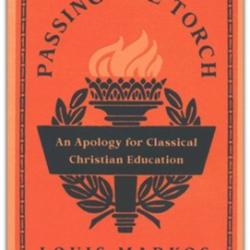I would add, in the many talks I gave on this issue, I always made a point of telling Jewish groups that instead of focusing on black-Jewish relations, Jews should be working to establish coalitions with Hispanics, who were on their way to displacing blacks from their status as our country's largest racial minority. And I would say the same things to blacks. Well, that day has arrived, and we are beginning to see tensions between blacks and Hispanics.
Q: The New York Post ran an article about the incident in 1969, and it quoted you as saying, "‘The sad thing to me is that I feel the UFT is responsible for quite a bit of the feeling that exists among young blacks now in terms of Jews,' Lester said. He said the teachers' union had adopted a position that anyone who opposed them was anti-Semitic." It paraphrases you at the end, so I don't know exactly what you said, but I'm interested in your thoughts today on the issue of anti-Semitism as a response to criticism in the Jewish community.
A: In general, the Jewish response to criticism is nuanced. There is a difference between someone being critical of Israel's actions and criticizing Israel's existence. I think Jews know the difference and respond accordingly. Indeed, if there were Arabs who were as openly critical of Hamas or Hezbollah as there are Jews who are critical of Jewish fanatics, the situation in the Middle East might be different.
The problem is that non-Jews think they understand anti-Semitism, and all too often they don't. And when Jews tell them that something they said was anti-Semitic, they accuse us of trying to stifle criticism.
I've always found it interesting that the people who listened to my radio show after the poem was read, who listened to the numerous phone calls I took, who listened to me engage listeners in difficult conversations about racism and anti-Semitism, understood what I was doing, and none of them accused me of being anti-Semitic. It was the people who read about my show in the New York Times who accused me of being an anti-Semite. The UFT used the poem incident and me for its own political ends.
Can Jews be manipulated around the issue of anti-Semitism? Yes. Are there Jews who find their Jewish identity in fighting against anti-Semitism, real and imagined? Yes. And the same can be said of blacks in relationship to racism.
Q: This answer raises another question, because it poses the dilemma of how to move beyond this cycle of recrimination. If it is true that non-Jews cannot understand anti-Semitism fully and perhaps that non-blacks cannot understand the suffering of blacks, then how do we manage to have a dialogue?
A: I don't accept the premise that seems to be conventional wisdom these days that only blacks can understand the black experience, women their experience, Native Americans their experience, and on and on. One of the lovely, very touching experiences of the early sixties was young whites and young blacks meeting for the first time, curious as to what it was like to be the other, and each eager to show the other what their lives were like.
However, I want to go a step farther. Even if people from different ethnicities/races/genders cannot understand each other, nothing keeps them from respecting each other and accepting each other. One of my former wives said to me once, "I don't understand you." I looked at her and said, "I don't understand myself. Why do you think you should be able to? Do you have to understand me to love me?"
One of the failures of modern living is the failure to use our imaginations. And it does not require much effort to imagine what it must feel like to hurt. But instead of using our imaginations, instead of putting ourselves inside someone else's experience, we argue with that person about his or her experience. We do not want to make the effort to listen to someone talk about his or her experience without arguing with that person. The key to any kind of dialogue is not talking but listening, listening not only with one's ears but with one's heart.
Acts of compassion bring more people together and are more lasting than understanding, and listening with one's heart is an act of compassion.
Q: One of the interesting things you mentioned when you wrote about the incident is how "my strongest supporters during these weeks are also Jews" and "Ironically, I [did] not receive one expression of support from blacks." I know this is a bit of a general way to ask the question, but I was wondering if you could just talk about that imbalance of support.
A: In 1969, there was more space in the Jewish community for different ideas, even opposing ideas. That was much less true of blacks in 1969. The tolerance for varying ideas that existed in the black community in the early and mid-sixties was waning by the end of the decade as black nationalism became the abiding ideology. By 1969 many blacks did not consider me "black" because I was not a nationalist. Black is a political definition, not a racial designation, and so, after I converted, there were many blacks who told me that I was no longer black, that a person could not be black and Jewish. That attitude has waned considerably in the past ten years, and now I find many more blacks who are curious about Judaism, blacks who are interested in conversion seeking me out, and just blacks who tell me they are happy I found a spiritual home.




